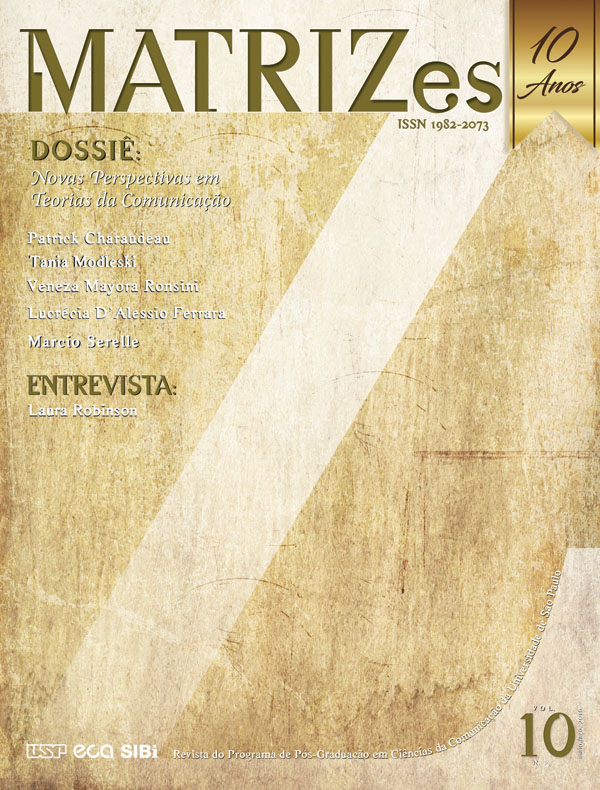Is television capable of informing?
DOI:
https://doi.org/10.11606/issn.1982-8160.v10i2p13-23Keywords:
Television, TV news, visual staging, image, publicAbstract
This article approaches the television matter as information media. It shows that television is a vehicle of democracy, which serves the “masses” (a more wide-ranging type of audience than traditional press readers), but, at the same time, is not capable of manipulating them with ease. It is considered that television audience is an interested part in the process of its proposed spectacularization of world seen on TV. Television assumes a particular role, even though it is possible to affirm that there is no meaning without verbal language. Television puts its viewer, a “kaleidoscope of opinions”, in a dual position: as a “world spectator” and as a “television spectator”.
Downloads
References
CHARAUDEAU, P. La pathémisation à la télévision comme stratégie d’authenticité. In: PLANTIN, C. et al. (Ed.). Les émotions dans les interactions. Lion, França: Presses Universitaires de Lyon, 2000. p. 125-155.
CHARAUDEAU, P. et al. La télévision et la guerre: deformation ou construction de la réalité? Le conflit en Bosnie (1990-1994). Bruxelas: INA-De Boeck Université, 2001.
FLEURY-VILLATE, B. (Ed.). Les médias et la guerre du Golfe. Nancy: Presses Universitaires de Nancy, 1992.
Downloads
Published
Issue
Section
License
Authors who publish in this journal agree to the following terms:
- Authors retain the copyright and grant the journal the right to first publication, with the work simultaneously licensed under the Creative Commons Attribution License (CC BY-NC-SA 4.0) which allows sharing of the work with acknowledgment of authorship and initial publication in this journal for non-commercial purposes.
- Authors are authorized to assume additional contracts separately, for non-exclusive distribution of the version of the work published in this journal (eg, publishing in institutional repository or as a book chapter), with acknowledgment of authorship and initial publication in this journal.






















